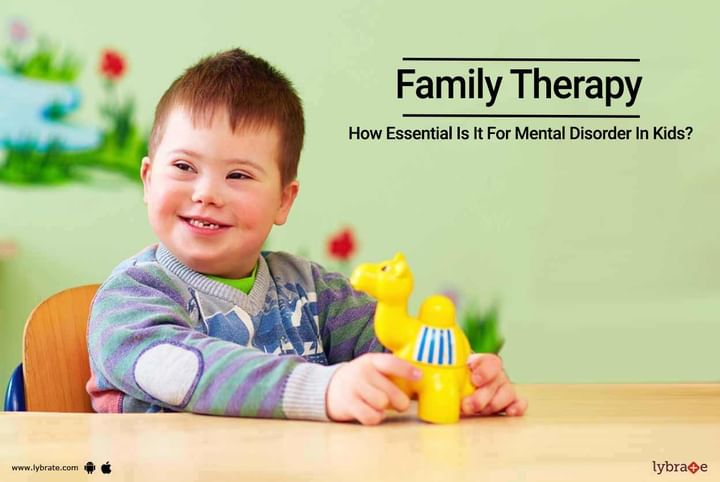Family Therapy - How Essential Is It For Mental Disorder In Kids?
Often, issues faced by dysfunctional families take a toll on a child’s mental health, and various factors can lead to a child's mental health problems. Physical and verbal abuse and parental divorce are among other causes of mental health problems in children. Family therapy is one of the proven effective psychiatric procedures that help a child cope with mental health issues, and helps to direct the child’s life.
The Role of Family Therapy -
Family therapy is also known as family focus therapy or family systems therapy works with families, to help them in dealing with a wide range of family problems. One such problem is a child’s mental illness.
Children, pre-teens and teens are continually going through a developmental phase during their formative years. This is the time when they are most vulnerable to the adverse impacts of life. Sometimes parents are not equipped to deal with the suffering child properly. This is where family therapy can significantly benefit families and children. The psychological process can help children in dealing with major issues such as bad conduct, mood disorders, drug abuse, and eating disorders.
It can include individual sessions amidst a series of family meetings, and when required. At times, even the social networks around families can be included.
Mental Issues That Family Therapy Focuses -
Family therapy offers a possible treatment for a wide range of conditions including a long-term illness such as depression. It is based on two principles. Mental illness is made only worse by a dysfunctional family. Immediate family relationships are the strongest support system for a child. This is what makes them most important during long-term treatments.
Family therapy focuses on treating and molding the way families, and parents interact with the child facing mental issues. It helps in strengthening parent and child bond, and also helps instill faith and confidence in the child dealing with mental issues. All these measures combined to bring the child on the road to recovery.
How Does It Work?
Family therapy is not a time-bound process, so its effectiveness depends on the child and family. The therapy has its various forms and can be integrated with one another, as and when the psychiatrist thinks it is necessary. Among its multiple forms are teaching coping skills, psychoeducation, behavioral models, structural family therapy, systematic models, and solution-focused therapy.
Family therapy has proven most effective during the childhood and adolescent stages, where it has shown significant improvement among children suffering from anorexia, inattention, hyperactivity and severe long-term illnesses such as depression, obsessive-compulsive disorder, bipolar disorder, drug abuse and anxiety disorders among others. Family therapy can be very effective in a wide range of psychiatric conditions.



+1.svg)
